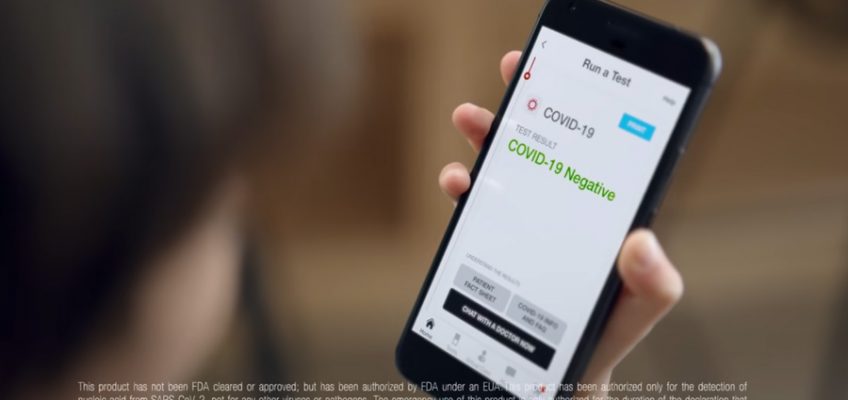
SAN FRANCISCO, CA – A new Bluetooth-enabled digital coronavirus test, known as “Cue,” is being touted as a fast and efficient way for individuals to test themselves for the virus on a regular basis, as experts are predicting that COVID-19 – despite the current lull in overall infections compared to this period of time last year – is most likely to be here to stay.
Advertising for Cue facetiously shows the device utilizing its Bluetooth connectivity to “communicate” with other smart devices in a person’s home, such as the Amazon Echo and Google Nest; eventually, a young boy who is awaiting his results is shown to be relieved when he tests negative for COVID.
Cue’s website notes that it produces “reliable, easy-to-use COVID-19 tests with PCR-quality results delivered right to your mobile device in 20 minutes. No lab visits. No lines. No second guessing your results.”
However, after Cue administers its molecular COVID-19 test, it will then transmit the results – positive or negative – directly to several state and federal government agencies for record-keeping purposes, including the Centers for Disease Control and Prevention (CDC), which many of the device’s users may not be aware of.
The “Fact Sheet For Healthcare Professionals” that is included in the Cue’s packaging – which most people probably don’t bother to read – states that “The Cue Health Mobile Application (Cue Health App) automatically reports test results according to the reporting guidelines of the appropriate public health authorities.”

Likewise, Cue’s privacy policy notes that the unit will report a user’s personal information “to the Centers for Disease Control and Prevention or other federal agency and/or state government agencies as required for public health surveillance and related purposes.”

But – being a fully-digital platform – Cue also possesses serious potential security vulnerabilities; in April, a researcher discovered one that could allow the recorded tests results to be altered prior to being transmitted; this issue has since been discovered and rectified, but additional problems with securing individual’s private medical records could nonetheless exist.


Leave a Reply